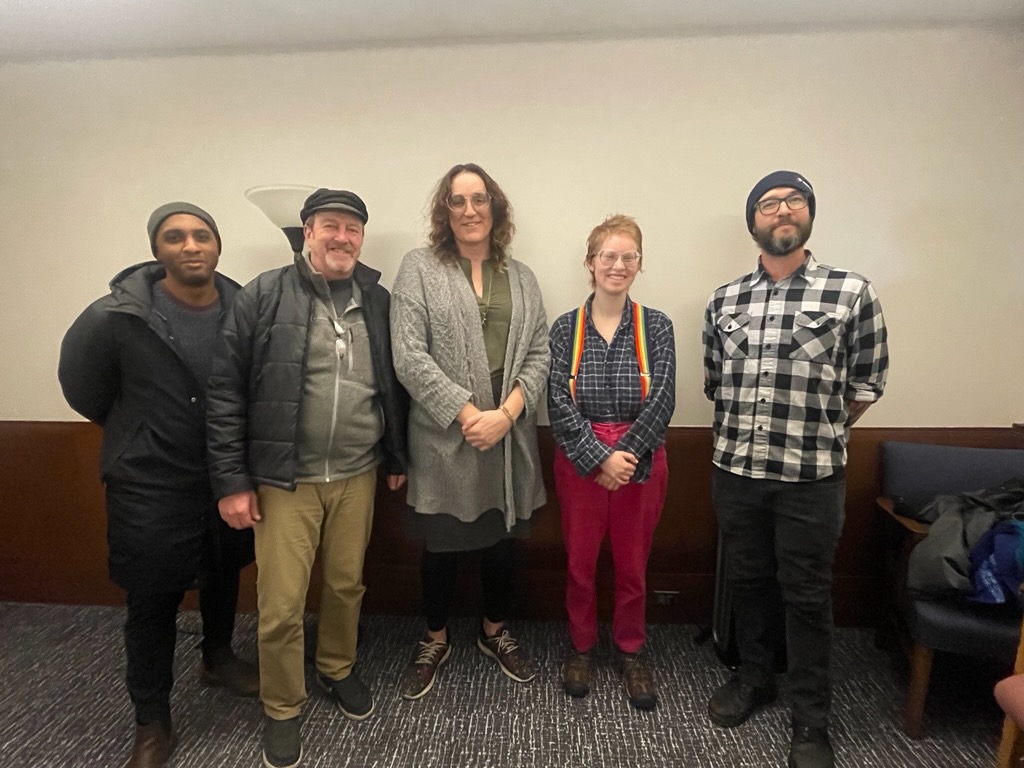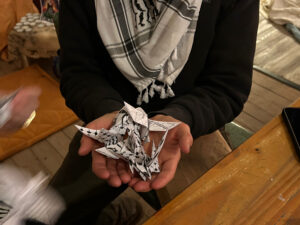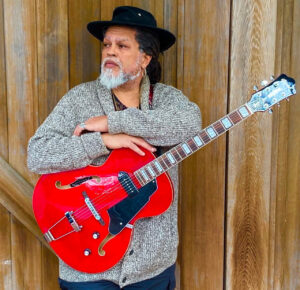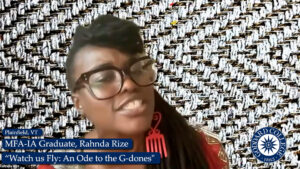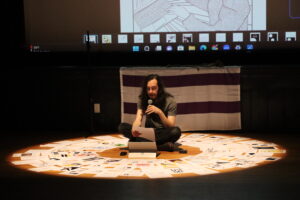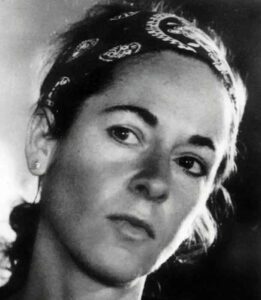
Dear Goddard,
This is an epic moment for us—what Goddard is now, what it has been, what it always will be: our DNA. As we rejoice and celebrate both affirmation of our accreditation status and our former Vermont State Poet and faculty winning the 2020 Nobel Prize in Literature, I want to share a personal story with you as I reflect on the transformational role of Goddard in people’s lives.
Goddard played a pivotal role in Louise Glück’s development as a poet, as she struggled to best honor her gift. In her own words:
“When I was young I led the life I thought writers were supposed to lead, in which you repudiate the world, ostentatiously consecrating all of your energies to the task of making art,” Glück said. “I just sat in Provincetown at a desk and it was ghastly – the more I sat there not writing the more I thought that I just hadn’t given up the world enough. After two years of that, I came to the conclusion that I wasn’t going to be a writer. So I took a teaching job in Vermont, though I had spent my life till that point thinking that real poets don’t teach. But I took this job, and the minute I started teaching – the minute I had obligations in the world – I started to write again.”
This job was joining the Goddard community; I think of her poem “Snowdrops” for insight into what that meant—
I did not expect to survive,
earth suppressing me. I didn’t expect
to waken again, to feel
in damp earth my body
able to respond again, remembering
after so long how to open again
in the cold light
of earliest spring–
afraid, yes, but among you again
crying yes risk joy
in the raw wind of the new world.
In fact, perhaps the poem can be read as a metaphor of an awakening back to life as a creative birth as a poet—for when you do not have your voice, you cannot express your being. It is submerged. It feels like a death. And then, the courage to be alive again, find yourself, through being in a community, “among you again”—and finding courage in that, “risk joy/in the raw wind of the new world.”
That is what I imagine how it was for Louise Glück when she came to Goddard, and her poetry flowed, in the context of this community and her teaching our students who believe in us, “trusting the process,” as we famously say.
On that note I share with you a personal story from my own experience coming to Goddard as your president. As you know I was president of Goddard College from 1997-2001. As a leader, immersed in the responsibilities of the position on behalf of all that needed to happen for Goddard, I thought that poetry was not part of my job. I thought that my own poetry no longer belonged. But I danced with Will in the Haybarn. People sent me poetry. My own board chair quoted a poem to me. Then there was a willow outside my window and it would dance for me, and finally, dance with me, as I joined in, stopping observing and allowing myself to become part of it. I wrote a poem about this surrender, this rebirth. I had thought poetry no longer was part of me or my work in this world. I sent this poem to our community, as a sign that my whole self beyond any roles was still alive, in there. And I began to write poetry again.
Here is the poem—a first in so many decades:
The willow tree is on a wind-enforced diet,
Relentless acrobatics, carried away,
Growing thinner before my eyes,
Its green bulk pale, splintered And full of space,
Its dark bones looming through.
I squint to see its silver green flesh in this morning light,
My ballerina willow In her tattered tutu.
Goddard in its core belief in community as a generative tension and force in creativity, the kind of hopeful imaginative engineering of solutions and ideas for the world’s most urgent and constant problems, is an incubator for new life of the spirit and mind. As Louise Glück said, her life as a poet seemed at a dead end as she sequestered herself in a poet’s loft trying to concentrate on poetry and away from the world. Then engaging with Goddard, teaching and entering the world, as she put it, with its responsibilities and obligations, the poetry came. Her poems celebrate rebirth—of the voice. From “The Wild Iris,”
Then it was over: that which you fear, being
a soul and unable
to speak, ending abruptly, the stiff earth
bending a little. And what I took to be
birds darting in low shrubs.
You who do not remember
passage from the other world
I tell you I could speak again: whatever
returns from oblivion returns
to find a voice:
from the center of my life came
a great fountain, deep blue
shadows on azure seawater.
I reflect today on Goddard as a fountain, where one may find a voice. Finding her voice has taken Louise Glück to Stockholm, for the Nobel Prize in literature. Goddard’s DNA of conscience and creativity may lead someday to another visit to Stockholm for the Peace Prize. Poetry and peace seem inextricably connected. Our small college has always had a disproportionate impact on society, perhaps because its voice, like Emily Dickinson’s hope, “a thing with feathers,” is a song that “never ends at all.” My own experience with Goddard has kept me singing in new life, like e.e. cummings, “i who have died am alive again today.”
Goddard is alive again today, in each of us.
As my name tag worn at Goddard, “the luckiest educator,” I remain so grateful for this presence of Goddard in our world.
Sincerely,
Barbara Mossberg
Barbara Mossberg is the President Emerita of Goddard College and is currently Professor of Practice at Clark Honors College and University of Oregon. She is the Creator and Host of The Poetry Slow Down podcast. (barbaramossberg.com)
Read more about Louise Glück and her connection to Goddard College.
There is no one-size-fits-all approach to education. Goddard students are motivated by their own interests and passions. For over 150 years, Goddard has been the leader in innovation around student voice, choice, and agency. Get Info

